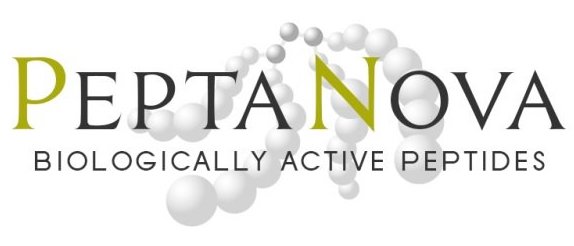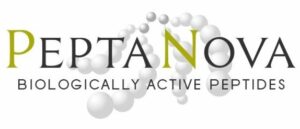PAMP (Human) – Proadrenomedullin (1-20)
Proadrenomedullin N-terminal 20 Peptide (Human)
4291-v 0.5 mg | 140.00 EUR
Synthetic Product
Ala – Arg – Leu – Asp – Val – Ala – Ser – Glu – Phe – Arg – Lys – Lys – Trp – Asn – Lys – Trp – Ala – Leu – Ser – Arg – NH2
| (M.W. 2460.8) | C112H178N36O27 | [150238-87-2] |
The purity is guaranteed to be higher than 99% by HPLC
Our synthetic product PAMP | Proadrenomedullin N-terminal 20 Peptide (Human) is distributed under the licence of Shionogi & Co. , Ltd. The use of PAMP (Human) for any purpose other than research is strictly prohibited.
Hypotensive Peptide
Proadrenomedullin (1 – 20) (PAMP) was described as the gene related peptide of Adrenomedullin , both peptides are cleaved from the same precursor. In different test models PAMP seems to be significantly more potent than Adrenomedullin. In addition it was reported that PAMP also depressed basal aldosterone secretion and is expressed in human cancer cell lines. Different publications show that this peptide has different functions as a universal autocrine growth factor. Scientists from the University of Tokyo described effects on the growth of human neuroblastoma TGW cells by Proadrenomedullin N-terminal 20 peptide. This effect can be blocked by ω-conotoxin GIVA code 4161-v, which indicates a mechanism by inhibiting N-type Ca2+ channels.
References:
- K. Kitamura, J. Sakata, K. Kangawa, M. Kojima, H. Matsuo and T. Eto, Biochem. Biophys. Res. Commun. , 194, 720 (1993). (Original; cDNA)
- H. Washimine, K. Kitamura, Y. Ichiki, Y. Yamamoto, K. Kangawa, H. Matsuo and T. Eto, Biochem. Biophys. Res. Commun. , 202, 1081 (1994). (Distribution in human tissue)
- K. Kitamura, K. Kangawa, Y. Ishiyama, H. Washimine, Y. Ichiki, M. Kawamoto, N. Minamino, H. Matsuo and T. Eto, FEBS Lett., 351, 35 (1994). (Pharmacol)

